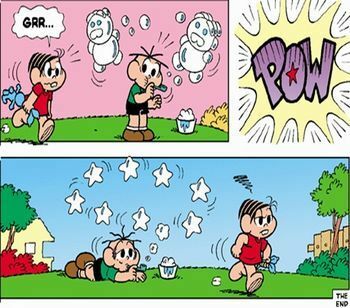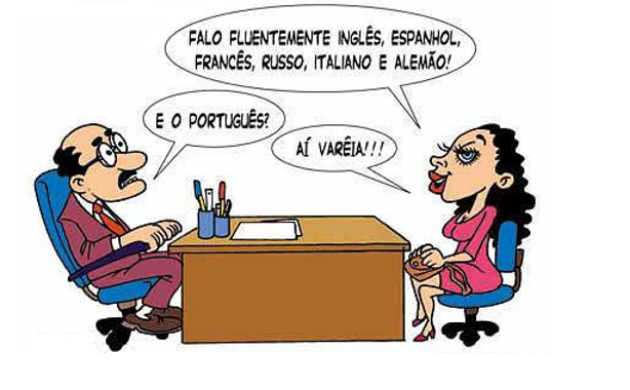Zeugma is a figure of speech that is in the category of syntax or construction figures. This is because it interferes with the syntactic construction of sentences.
It is used to omit terms from the clause in order to avoid unnecessary repetition of some terms, such as the verb or noun.
As such, it makes the language of the text more fluid. When it is used, the use of the comma becomes necessary.
Zeugma is used in informal language, and is also used in various poetic and musical texts.
In addition to the zeugma, other syntax figures are: ellipse, hyperbatic (or inversion), silepsis, asyndeton, polysyndeton, anaphora, anacolutton and pleonasm.
Examples
Check out examples of literary and musical phrases in which zeugma was used:
- “The college attended in uniform; the board, in a coat.” (Raul Pompeia)
- “One of them wanted to know about my studies; another had a stamp collection.” (José Lins do Rego).
- “Life is a great game and fate a fearsome partner.” (Érico Veríssimo)
- “We will think of each girl/who lived in that window;/one who was called Arabela,/another who was called Carolina.” (Cecília Meireles)
- “My father was from São Paulo/My grandfather, from Pernambuco/My great-grandfather, from Minas Gerais/My great-great-grandfather, from Bahia." (Chico Buarque)
Zeugma and Ellipse: Differences
It is very common for there to be confusion between the two syntax figures: zeugma and Ellipse. However, they have differences.
For many experts on the subject, the zeugma is considered a ellipse type, since it is also employed through the omission of one or more terms in the clause.
An ellipse is the omission of one or more terms from the speech that were not previously expressed. But these are easily identifiable by the interlocutor (receiver). In zeugma, the terms have already been mentioned before in the speech.
Check out the examples below:
- We are looking forward to the result. (through the verbal conjugation we can identify the omission of the pronoun “we”.) – ellipse
- Joaquim bought two pants, I one. (omission of the verb in the second sentence: bought). – zeugma
Curiosity
From the Greek, the term “zeygma” means “connection”.
Continue your research on the topic. Read the articles:
- Figures of Language
- Thought Figures
- Syntax figures
- Word Pictures
- Sound Figures


